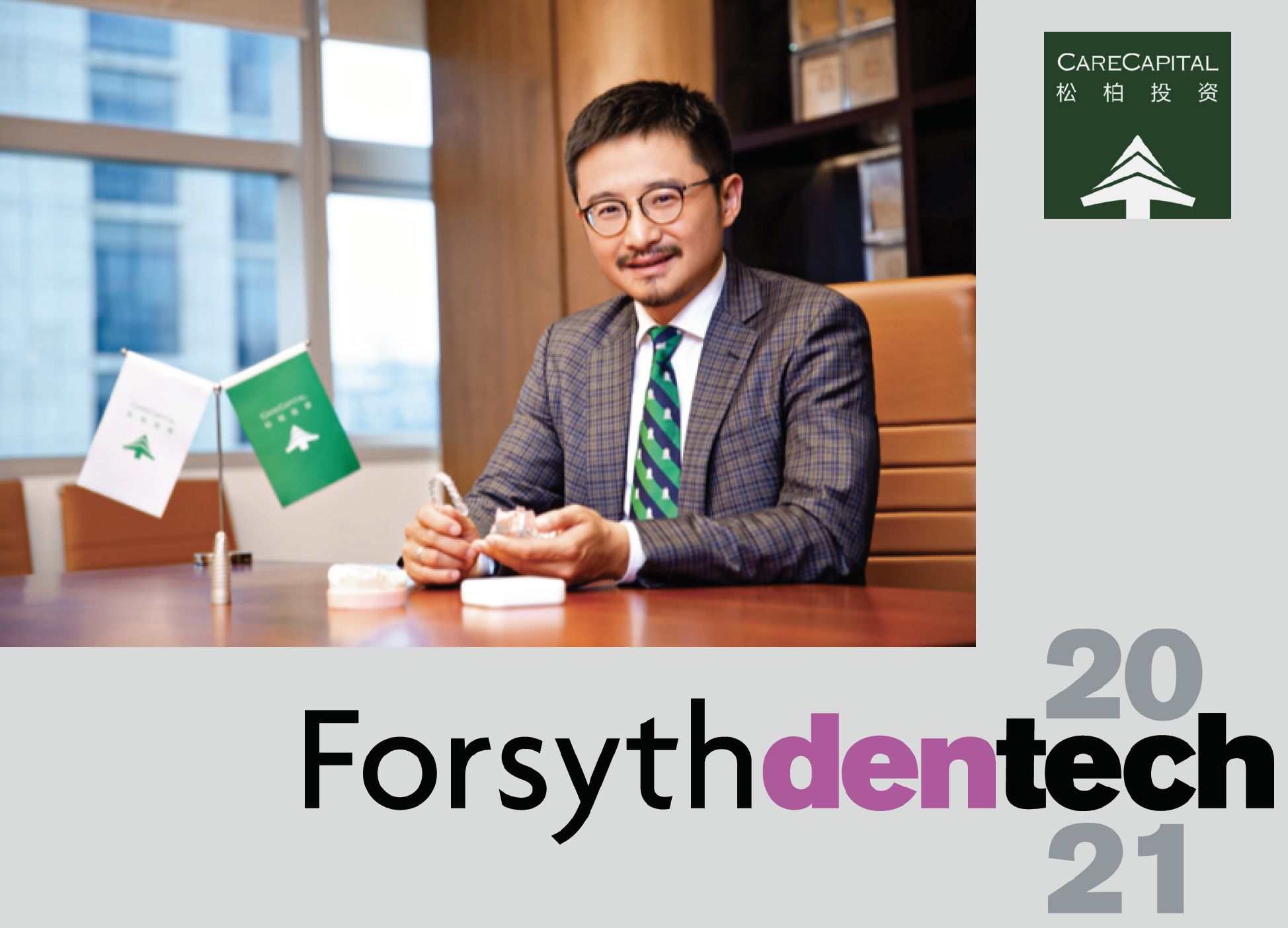The Forsyth Institute is pleased to present Dai Feng as the Keynote Speaker for Forsyth dentech 2021. Dai is the co-founder and managing director of CareCapital Advisors Limited, a dental focused VC and growth investor managing a $5 billion portfolio of more than 50 dental technology companies worldwide. The company invests an average of $250 million annually to support innovation and leadership. Around 80 percent of CareCapital’s portfolio is focused on dentistry, and includes everything from preventive, restorative, orthodontics, and implant to regenerative dentistry.
In anticipation of his dentech keynote speech, Dai answers two questions and makes a prediction for the future of dentistry.
Q1: What are the biggest obstacles facing investment in dental development?
One of the major challenges for dentists is that patients have very high expectations. In other areas of medicine, when a patient comes in with a cold or a cough, or something more serious like cancer or heart disease, as long as you have a clinically effective cure for them, you exceed their expectation, so they are very happy. With dentistry, people go in with very high expectations. They want it to be painless, effortless, and they want everything cured, so when they leave the dental office, they can go right back to work. Dentists must deliver way beyond that expectation to make a patient happy. That’s very hard to do, especially when you start to factor in new technology and new processes. That makes the launch and broad adoption of new procedures and new technologies more difficult than other diseases because you’re meeting up against very high expectations from the patient. It also makes dentists a bit more conservative in adopting new technologies.
Q2: How do you see dental development making a social impact moving forward?
Before I began focusing on dentistry, I was investing in cardiology, orthopedics, and neurology. Dentistry is the only field where the professionals seem to really like to hang out with each other on weekends and holidays. They truly like each other’s company. They like socializing and learning together. I think that communal spirit is a contribution to the professional world.
In addition, as dentistry spreads and the availability spreads, we are seeing the potential of technology to help penetrate rural, emerging markets. Most life-and-death diseases are already covered through a medical network. But dentistry is not. It’s actually neglected in many areas. I see the spread of dentistry having a positive effect on quality of life for people on the margin. Dental health is important for all of us to live a fuller life.
Additionally, the number of female students and professionals in dentistry is surpassing the number of male students and professionals for this new generation. I think it’s one of the few medical fields where gender is equalized. It makes dentistry more holistic and puts more focus on the patient.
Could you share a prediction you have about the future of the dental industry?
There will be a lot more connectedness in terms of how patients are diagnosed and treated. Instead of one dentist looking at one patient and formulating her view, there will be computer assistance with a huge cloud database of human protocols so the dentist will have assistance and access to other dentists in the world for diagnosis and treatment planning. This will lead to more holistic care for the patient, while still ensuring patient privacy. Dentists will no longer be a lone wolf working on a patient. The outlook is quite positive for dentists’ productivity and patient care improvements.

